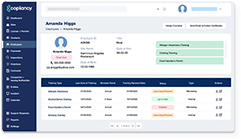Starting a business involves several steps, from writing a business plan to marketing your services or products. One critical yet often overlooked step is determining which licenses and permits your business needs. Operating without the proper licenses can lead to fines, penalties, or even closure. This comprehensive guide will help you understand what licenses you may need, how to find them, and why they are essential for your business’s success.
1. Understanding Business Licenses and Permits

Business licenses and permits are legal authorizations issued by federal, state, or local governments allowing businesses to operate. Depending on your industry and location, you may need multiple licenses and permits to comply with regulations. These can range from general business licenses to specific industry-related permits.
Types of Licenses
- General Business License: Almost all businesses need this basic license to operate legally in their jurisdiction.
- Professional or Occupational Licenses: Required for industries such as healthcare, law, real estate, or cosmetology.
- Health and Safety Permits: Common in food service, manufacturing, and childcare industries.
- Zoning and Land Use Permits: Ensure your business location complies with local zoning laws.
- Federal Licenses: Needed for businesses involved in regulated industries like transportation, broadcasting, or firearms.
2. Why Are Licenses and Permits Important?
Failing to obtain the right licenses can have severe consequences, including:
- Legal Penalties: Fines, lawsuits, or business closure.
- Loss of Reputation: Customers and partners may lose trust in your business.
- Operational Delays: Not having permits can prevent you from legally starting or continuing operations.
Proper licensing not only protects your business but also builds credibility with customers, partners, and investors.
3. Steps to Determine the Licenses You Need

Step 1: Identify Your Business Structure
The type of business you operate (sole proprietorship, partnership, LLC, corporation) affects your licensing requirements. For example:
- Sole proprietors may need fewer permits but are personally liable.
- Corporations often require more permits due to their complex structure.
Step 2: Research Federal Requirements
Some businesses need federal licenses based on their industry. For instance:
- Alcohol Distribution: Requires licensing from the Alcohol and Tobacco Tax and Trade Bureau (TTB).
- Broadcasting: Needs authorization from the Federal Communications Commission (FCC).
- Transportation: Regulated by the U.S. Department of Transportation (DOT).
Visit the appropriate federal agency’s website for detailed guidance.
Step 3: Check State Requirements
Most states have specific licensing boards or departments. Common examples include:
- State-level general business licenses.
- Industry-specific licenses, such as contractors’ licenses or cosmetology certifications.
You can usually find information on your state’s business or commerce department website.
4. Tools and Resources to Help You Find Required Licenses

Online License Lookup Tools
Many state and federal websites offer tools that help you determine which licenses are necessary for your business.
Business Advisors and Consultants
Consider hiring a business consultant or legal advisor to navigate complex licensing requirements.
Small Business Administration (SBA)
The SBA provides resources and guides for identifying necessary permits and licenses.
State and Local Agencies
Contact state and local offices directly for the most accurate and specific information.
5. Costs Associated with Business Licenses

The cost of licenses varies widely based on:
- Your industry.
- The type of license.
- Your location.
Some licenses are one-time expenses, while others require annual renewal. Be sure to budget for these recurring costs to avoid surprises.
Final Thoughts
Understanding and obtaining the correct licenses and permits is crucial for your business’s success. By following the steps outlined in this guide, you can confidently navigate the licensing process and ensure your business remains compliant. Whether you’re starting a small online store or managing a large construction firm, proper licensing protects your operations and builds trust with customers.
